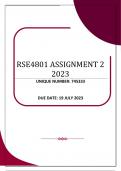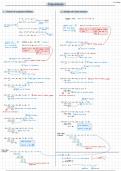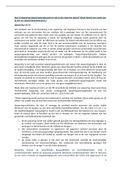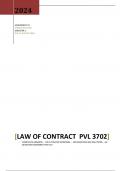Other
RSE4801 ASSIGNMENT 2 - 2023 (745333)
- Course
- RSE4801 (RSE4801)
- Institution
- University Of South Africa (Unisa)
RSE4801 ASSIGNMENT 2 - 2023 UNIQUE NUMBER: CLOSING DATE: 19 JULY 2023 Question 1 How, according to Chilisa (2012), should we understand ‘postcolonial indigenous research methodologies and philosophies’? What do you think is the value of such approaches to research in education in ...
[Show more]






